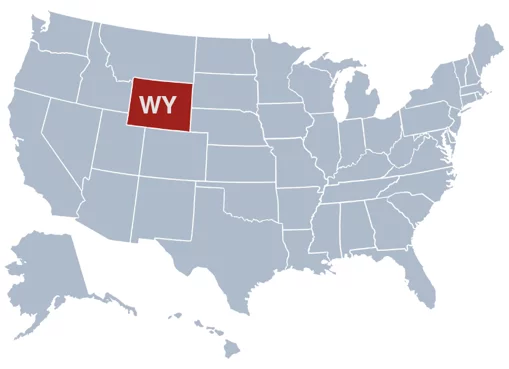
With 4.4% of the world’s population and 96% of the world’s lawsuits in the US, it is now more important than ever to maintain privacy. Thus, it is a wise financial strategy to keep a low profile as not to become a lawsuit target. Drive a nice car? Live in a nice house? Post your vacation photos on Facebook? You’ve just poured blood in the water for the shark-like lawyers to attack and make what’s yours theirs.
So, the importance of taking the necessary steps toward protecting your assets and maintaining a low profile is crucial. That is, if you wish to avoid a bloody battle lawsuits and creditors. This fact is especially true today since there are more and more lawsuits plaintiffs file every decade. The time is now to understand both asset protection and privacy techniques. Face it, you could be the next victim of a lawyer who wants an easy meal. So, you should prepare yourself now. Protect yourself against potential losses that could occur if you skip out on constructing your asset protection plan.
You can learn how to protect your assets and employ privacy techniques right now. So, there is no reason you should fear losing your assets in a potential lawsuit; that is, if you prepare ahead of time. This way, you know that your lifestyle and hard-earned wealth remain protected even. You can sleep easily even if you do get caught in a row of legal teeth.
To better understand asset protection, we present you with a list of privacy techniques. These strategies can help you keep your assets protected and maintain a low profile.

Asset Protection Privacy Techniques
What follows now is a list of asset protection privacy techniques. They can help you to keep a low profile and keep your assets safe; not only for yourself and your immediate family but future generations. Many people use a combination the techniques to develop a secure asset protection privacy plan.

New Mexico LLC
With a New Mexico LLC you never have to file a list of managers. Who owns and manages the LLC is private. There is nothing in the public records disclosing ownership or management. Nobody can find out who owns it unless you tell them or a court order forces your hand.
Unlike Nevada, which, as of this writing, charges well over $500 for the initial and annual list of managers and business license fee (on top of the setup fee), the annual fee for New Mexico is zero. That’s right, nothing. The only typical annual cost is the registered agent for service of process. This is typically under a couple hundred bucks. So, you get substantial anonymity with very little maintenance.

Nevis LLC
Whereas the New Mexico LLC does not have to file a list of managers, it can be subpoenaed. Moreover, in seconds, anyone can look on the Internet to see that the company exists. The Nevis LLC cannot even be found online. The public record is not viewable on the Internet. So, nobody would easily know that the company was even created.
Plus, you are dealing with offshore bank account in the name of the Nevis LLC. Therefore, you are working with a bank that some attorney down the street cannot simply force to cough up information. So, whereas the New Mexico LLC is good. The Nevis LLC is much better for use as a privacy tool.
Benefits of a Nevis LLC
The following are additional benefits of the Nevis LLC.
- The manager is not publicly but can have 100% control.
- The manager can control even without ownership.
- Creditors must post a $100,000 bond before filing legal documents in Nevis against a member’s ownership interest in the LLC.
- Courts will dismiss the case if the assets have been in the LLC at least two years. (Two-year statute of limitations on fraudulent transfer.)
- An LLC or corporation in any country can become a Nevis LLC.
- Proof beyond a reasonable doubt is required for a plaintiff to show that a transfer was made with the intent to delay creditors.
- Both multi-member and single member LLCs get asset protection benefits.
- Charging orders against an LLC member’s interest fall off in 5 years.
- Unlimited number of members is available.
- Any person or company can own it.
- There is not any tax in Nevis for income produced outside of Nevis.
- Members can reside in any country.
- Can be merged with foreign or domestic companies.
- One-owner LLCs are available.
- Members (owners) may assign their interest to anyone unless restricted.
- Managers can be members or non-members.
- There can be various membership powers. For example, certain classes of membership can have greater voting power.
- Favorable choice for a group of investors. Unlike the general partner of a limited partnership, there is liability protection for all members.
- Can be established within 24 hours.
- Low initial and annual fees.

Wyoming Corporation
To name a corporation, most states and countries require a “corporate designator” at the end of the name. Corporate designators include words such as Corporation, Incorporated, Limited, and their abbreviations, Corp., Inc., and Ltd.
In Wyoming, a corporate designator is not required. What that means is this. If your name is “Pat Gunderson,” you can name your corporation “Pat Gunderson” without “Inc.” or “Corp.” as an ending. Suppose you have a judgment against you and receive a check payable to yourself. Do you think it could be beneficial to deposit it into your corporate account? Since your corporation has its own tax ID number, there is no direct tie back to you. You can be the signatory on the bank account. Alternatively, you can have a trusted family member or friend be the signatory on the corporate account; with an emphasis on the word “trusted,” mind you. You can, perhaps, have your hands on the debit card.
Now you have an avenue to cash checks payable to you without making it easy for someone to just come in a scoop your account dry without prior notice. Can this tactic survive an all-out legal assault? It depends. First your opponent would need to know it exists. It would be more likely to survive a legal onslaught with the additional tools listed below. Whether or not it can withstand a strong legal storm, it gives you an opportunity to conveniently cash checks made payable to you. This company has witnessed multitudes of people use this technique to successfully fly under the radar for many years.
Essential Wyoming LLC Privacy Tools
To work properly, this strategy is best employed with three additional services:
- A Wyoming “virtual office” program. This program offers an address and telephone number for the company. So, if anyone comes sniffing around to see if the company is associated with you there will not be an obvious trail.
- Nominee officer and director service. Since officers and directors are listed in the public records, having a nominee, meaning, “in name only,” serve as officers and directors of your company, you can maintain control having the shareholder voting rights in your hands or the hands of a trusted family member, trust or associate.
- Nominee shareholder. By having a nominee shareholder, if someone asks, “Do you own the company?” you can honestly say that you do not. Depending on your legal circumstances, you may want to have the company owned by your spouse, kids, parents or trusted associate. A nominee shareholder agreement that can give you the say-so over corporate activities but keeps your ownership at arm’s length.

Land Trust
A land trust is a trust used for holding title to real estate. When you establish a land trust you can own your property in the name of a trust/trustee instead of your name, personally. This keeps your name out of the public records. What shows up publicly is the name of the trust and the trustee. The trustee can be a Wyoming LLC that you own privately that has nominee nominee managers. It will also have a virtual office address in Wyoming. In addition to company formation, we provide both of these services, if needed.
If someone does a public records search and all of your real estate holdings are in separate land trusts, your name does not appear in the search. This allows you to keep your real estate ownership private and away from prying eyes.
You can establish a land trust for your personal residence and additional land trusts for each piece income property, a second home or other types of real property. The Garn St. Germain Depository Institutions Act of 1982 prevents a bank from calling a loan due when you transfer property into a land trust, as long as you remain the beneficiary and the property consists of one to four dwelling units.
Where are Land Trusts Legal?
Land trust are currently in use in all 50 states. Some state statutes address land trust and others do not. The state code does not need to specifically address this type of trust in order for it to be legal. Not every facet of life has been codified into law. For example, state or federal code does not address the manner in which you style your hair in order for a particular hairstyle to become legal. It does not dictate how many books you may own or the color of your shoes. So, in such cases, common law dictates.
Land Trust Law
Common law has to do with what activities have been generally accepted over the centuries. It is the unwritten law, especially that originating from England, based on custom or based on court decision, rather than from written (statutory) law. Common law certainly does permit the use of trusts to own real estate.
Land trusts are not asset protection vehicles. They are privacy vehicles. It is considered best practice for each land trust that owns income property to have a separate LLC as its beneficiary. This both cloaks the ownership (with the land trust) and provides an asset protection and lawsuit protection tool (which is the LLC) to help protect the affiliated human beings from litigation. For home ownership tax benefit purposes, it is generally recommended that natural persons remain as beneficiaries of land trusts that own personal residences. This can help maintain the interest deduction, property tax adjustments, and the sizable tax-free profits upon sale.

Spousal Gifting Trusts
Spousal Gifting Trusts work well for married people looking for privacy, asset protection and estate planning. A Spousal Gifting Trust allows you to obtain asset protection and privacy from creditors and to reduce estate taxes. Even better, these types of trusts give you substantial control over those assets, should you need access to them at any time. The amount of privacy and protection offered is similar to most trusts, but the bonus here, as mentioned, is the combination of the asset privacy and the asset control.
A Spousal Gift Trust is a type of irrevocable trust that can offer powerful asset protection for your spouse and your descendants if established and operated properly. Though one’s individual situation may vary, this may be especially useful in states that do not have community property statutes, or it can be structured in such a fashion to make trust assets part of the less vulnerable spouse’s estate. It removes trust assets from your estate as well as the estates of your spouse and descendants for estate tax purposes.
A Spousal Gift Trust is structured to grant lifetime annual exclusion gifts to your spouse that would otherwise go unused. This makes it very similar to a “bypass trust,” which is a trust that bypasses federal estate tax upon death.
How it Works
The bottom line is that when using a Spousal Gift Trust, you irrevocably transfer assets to a trust of typically $260,000, but no greater than $1 million. Your spouse serves as trustee (or co-trustee) and beneficiary. Moreover, you can contribute lifetime gifts of $14,000 per year (as of this writing) to your children and other descendants. Those individuals can be also be beneficiaries during the lifetime of your spouse, or they can be remainder beneficiaries when your spouse dies. Your spouse can be granted power to appoint trust assets at death, or for your benefit during your lifetime if your spouse dies before you.
So, you have done several good things for yourself: 1. You have transferred assets to others privately in manner that does not appear in the public records. 2. You have reduced or eliminated gift tax. 3. You have used a tool that lets you dictate the transfer of your assets as part of your estate plan.

Family LLCs/Limited Partnerships
Both Family Limited Liability Companies (FLLCs) and Family Limited Partnerships (FLPs) offer a good deal of asset protection and privacy from creditors and lawsuits. With either one of these entities, you can put your assets into the actual company or partnership. You can have nominee managers for your LLC so your name does not appear in the public records. If you do use an LP, since the general partner is vulnerable to lawsuits against the partnership, you can place an LLC as the general partner of the LP as a liability shield.
Picture yourself putting your assets securely into the company or partnership. First it can protect your privacy. Then, because of the asset protection provisions inherent in each of these entities, it shields your assets. Thus, an LLC or LP can shield your assets from a creditor trying to seize them when you happen to find yourself in a lawsuit.
Domestic Asset Protection Trusts
Trust allow you to hold asset privately. In some states, such as California, you need to be aware that how you structure an irrevocable trust for asset protection and privacy determines whether you will receive either. For instance, in California, and many other states, forming your own irrevocable trust and listing yourself as the beneficiary eliminates its ability to protect assets from creditors. To sum up, if you are the beneficiary of your irrevocable trust in certain states, you are giving away your asset protection and privacy because this type of trust cannot legally protect you from creditors. It is considered a “self-settled” trust.
There are states that that allow “self-settled” trusts to provide asset protection. These states do let individuals from irrevocable asset protection trusts that name themselves as beneficiaries. They allow people to form these trusts in this manner and still retain protection from creditors. In states that allow “self-settled” trusts, a trust like this can help you shield yourself from creditors and lawsuits. Thus, it is very important for you to understand that where the trust is domiciled determines whether you can use it for privacy and asset protection planning. There is case law wherein if the beneficiary of the trust does not also reside in the jurisdiction that allows self-settled trusts, the trust has been penetrated. That is why the offshore trust mentioned below has a much favorable case law history.

Offshore Asset Protection Trusts
Offshore asset protection trusts are a huge step up, and take asset protection and privacy to a whole new level. Asset protection trusts in the Cook Islands, Nevis and Belize allow self-settled trust that provide powerful asset protection. Whereas US judges have jurisdiction over US trusts, having an offshore trust, offshore trustee, and account offshore, takes much of the decision making out of the hands of the local judiciary. In the 40 years since this company has been established, its principles have never seen a trust settlor or beneficiary lose funds from an offshore trust that it has established. So, among of all the tools available, the offshore asset protection trust has shown to be the most powerful asset protection vehicle for liquid assets.
Your offshore trust will own 100% of an offshore LLC. The offshore LLC holds a bank and/or brokerage account. You are the signatory on the account(s) until it is time for the trustee to step in and protect you from a judge ordering you to bring the money back.
Statute of Limitations
There is a one to two-year statute of limitations for fraudulent transfer in the Cook Islands. So, when you establish a Cook Islands trust and place your assets into it, if your opponent beats the clock and files a lawsuit in the Cook Islands before the deadline, it is unlikely your opponent could reach your assets. However, if you put your assets into the trust and they been in the trust for two years or more, it is almost impossible for your opponent to reach them.
Your Trustee
Can you trust the trustee? The trustee had to go through excruciating background checks in order to obtain a license. The trustee is bonded by an insurance company that can make you whole in the event of misconduct. Plus, this organization have been around for over 40 years and has yet to see a settlor or beneficiary treated unethically. Keep in mind, the only time the trustee would step in is when the money would be taken by the courts
Let’s say you are in a sinking rowboat in the middle of the ocean and a cruise ship goes buy. Are you going to tell the captain, “I would climb aboard your ship, but what if it sinks?” or are you going to just climb aboard? It is the same here. You only need the trustee to step in when you feel your financial ship is sinking.

Captive Insurance Companies
Captive Insurance companies offer substantial ongoing tax deductions. Not usually considered a privacy tool, it offers such tremendous benefits in other arenas it is worth mentioning. First, let’s address the Captive Insurance Program as a powerful tool for those with an extra cash flow who want to take advantage of a huge federal tax loophole. If you want to protect that extra cash as well as giving yourself some extra privacy and asset protection, forming your own Insurance Company and paying that company insurance premium payments provides you with an excellent shield from losing that excess wealth if a lawsuit attacks.
It works like this:
- Establish your own insurance company (preferably offshore where the cost is less).
- Have your local company pay insurance premiums.
- Internal Revenue Code section 831(b) allows your insurance company to earn up to $2.2 million each year in premium income tax-free.
- You own your insurance company in an offshore asset protection trust.
So, your company gets to deduct the premiums as an ordinary and necessary business expense. Then, your insurance company gets to claim the premiums as tax free, up to $2.2 million per year.
Your premiums can turn out to be income tax deductions. Furthermore, as mentioned, you can hold the shares of your insurance company in an offshore irrevocable asset protection trust. The main benefit of this type of approach is that by being owned by the trust, premium payments and accumulated income is shielded from creditors.
Chapters:
[Home] [1 What Is] [2 Why] [3 Bulletproof] [4 Peace] [5 Strategy] [6 Choose]
[7 Considerations] [8 Tools] [9 Shield] [10 Position] [11 Maximize]
[12 Privacy] [13 Optimize] [14 Separate] [15 Prevention] [16 Scams]
[17 Monitoring] [18 Pitfalls] [19 Private] [20 Tips]




